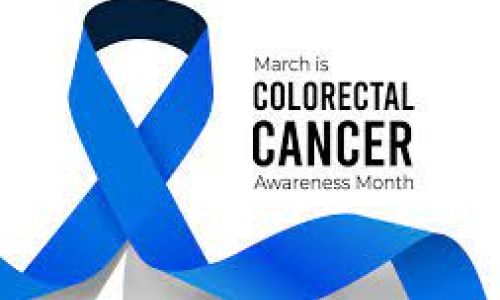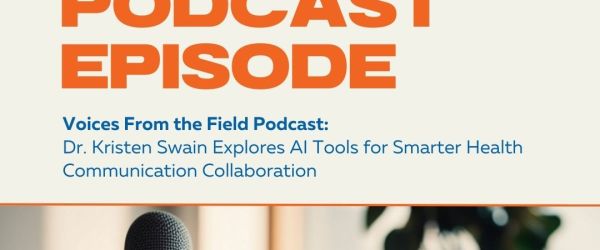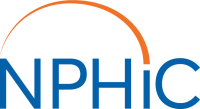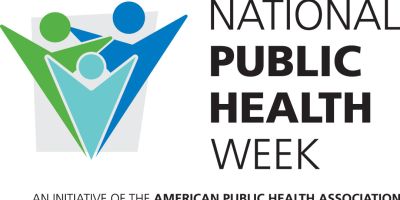Sharing Knowledge
Expertise
Resources
Making Public Health Public
Premier Network of
Public Health Communicators
Increasing the Dissemination of
Accurate Information
2025
National Conference on Health Communication Marketing and Media
Short Reel: "Voices, Vision, and Vibes – A Recap”
Thanks to all who attended and made the week so special!
2025
National Conference on Health Communication Marketing and Media
Short Reel: "Voices, Vision, and Vibes – A Recap”
Thanks to all who attended and made the week so special!
LATEST NEWS HIGHLIGHTS

Why New Doctors Aren't Specializing in Infectious Diseases
Interest in infectious disease fellowships is declining at a time when vaccine-preventable illnesses and other infectious threats are resurging. According to National Resident Matching Program data, only 61% of infectious disease fellowship positions were filled this year, down from 88% five years ago. Applications have also dropped significantly since their post-pandemic peak.
Experts point to lower compensation compared to other specialties, lingering burnout from COVID-19, and broader strain on the field as contributing factors. The trend raises concerns about long-term capacity to address outbreaks, antimicrobial resistance, and the needs of immunocompromised populations — core pillars of public health preparedness and response. Read more from Axios here.

Rectal Cancer Rates are Rising in U.S., Driving an Increase in Illness in Younger Adults
Recent data from the American Cancer Society highlight a concerning rise in rectal cancer, particularly among adults under 65, who now account for nearly half of new colorectal cancer diagnoses. Rectal cancers alone comprise about one-third of all colorectal cases, and rates are increasing across age groups.
Experts emphasize that younger adults often experience delayed diagnoses, underscoring the need for early symptom recognition and timely screening. With guidelines now recommending colorectal cancer screening starting at age 45, public health communicators face opportunities to educate communities on risk factors, preventive behaviors, and the importance of prompt medical evaluation for gastrointestinal symptoms. Read more from NBC News here.

Surgeon General Nominee Addresses Vaccine Messaging During Confirmation Hearing
During her Senate confirmation hearing, President Trump’s nominee for U.S. Surgeon General, Dr. Casey Means, said she believes vaccines save lives and are an important component of infectious disease strategy, but declined to broadly encourage routine childhood immunizations for measles, influenza, or whooping cough. Instead, she emphasized individualized discussions between parents and physicians.
The exchange comes amid recent federal shifts in vaccine recommendations and ongoing national debate about vaccine confidence. For public health communicators, the hearing underscored the critical role national health leaders play in shaping public understanding, reinforcing scientific consensus, and maintaining trust during periods of policy and messaging change. Read more from The Hill here.
FEATURED TOPICS
New Voices From the Field Podcast: Sharing to Survive: Building Resilient Health Communication Research Networks through AI-Powered Collaboration
Written on

Recorded during the 2025 National Conference on Health Communication, Marketing, and Media (NCHCMM) in Atlanta, NPHIC’s Public Health Speaks podcast continues its Voices from the Field series with a new episode, Sharing to Survive: Building Resilient Health Communication Research Networks through AI-Powered Collaboration.
In this conversation, Dr. Kristen Swain, Ph.D., Associate Professor of Journalism at the University of Mississippi, examines how emerging AI tools can help health communication researchers share smarter, break down silos, and strengthen cross-sector collaboration. The episode explores how AI-powered collaboration can accelerate knowledge sharing, improve research translation, and build more resilient systems to address complex public health challenges—offering timely insights for communicators, researchers, and AI-curious professionals alike. Listen to the episode here.
Journalism, Media, and Technology Trends and Predictions for 2026
Written on

For public health communicators, the ways audiences access and trust information are shifting faster than ever, driven by generative AI and the rise of personality-led news. A 2026 global survey of media leaders highlights declining engagement with traditional journalism, especially among younger audiences who prefer platforms, influencers, and AI-powered “answer engines.”
Publishers anticipate major drops in search and social referral traffic and are pivoting toward original reporting, human-centered stories, and video and audio formats. While AI offers efficiencies in newsgathering and distribution, it also risks commoditizing general news. These trends emphasize the importance of credible voices, adaptable content, and meeting audiences where they increasingly seek information. Read more from Reuters here.
Exercise is as Effective as Medication in Treating Depression, Study Finds
Written on

A new Cochrane review of 73 randomized controlled trials involving 5,000 people finds that exercise—ranging from light walking to moderate activity—can be as effective as medication or therapy in reducing depressive symptoms. Exercise boosts neurotransmitters like serotonin, dopamine, and endorphins, and supports brain neuroplasticity through increased brain-derived neurotrophic factor (BDNF), enhancing the brain’s ability to adapt.
Combining aerobic and resistance training may offer additional benefit. Experts note that exercise is low-cost, accessible, and generally safe, yet remains underutilized, underscoring its potential as a foundational, first-line public health strategy for mental wellness. Read more from NPR here.
OpenAI Launches ChatGPT Health in a Push to Become a Hub for Personal Health Data
Written on

OpenAI has launched ChatGPT Health, a dedicated platform allowing users to securely connect medical records and wellness apps to personalize health conversations. Designed to enhance patient engagement and decision-making, the tool flags potential medication risks by integrating user data without training its AI on personal medical information.
Early examples highlight its potential to help patients navigate complex care systems. While initially available to a limited group, OpenAI plans broader rollout on web and iOS. ChatGPT Health incorporates layered protections, multi-factor authentication, and record management features, signaling a growing intersection of AI and public health communication. Read more from Fortune here.
Latest Blog Posts
Podcast
"Public Health Speaks"
A bi-monthly podcast series about public health issues to educate, inform and assist our members, partners and affiliate organizations in understanding and overcoming urgent communication challenges
From Our Partners
CDC Online Newsroom
- Secretary Kennedy Appoints Two Physicians to CDC's Advisory Committee on Immunization Practices
- Statement on the Resignation of the CDC Principal Deputy Director
- Extensively drug-resistant Salmonella outbreak linked to moringa powder capsules
- CDC's National Firefighter Registry for Cancer is Now the Largest in the Nation
- CDC Surpasses 1 Million Voluntary Air Travel Participants in Biosurveillance Program
- New recall in Salmonella outbreak linked to dietary supplements containing moringa leaf powder
- United States Completes WHO Withdrawal
- Live It Up Super Greens supplement powders linked to new Salmonella outbreak
CDC Latest COVID-19 Science Update
CDC FluView Weekly Summary
CDC Morbidity and Mortality Weekly Report
- Multicounty Outbreak of Salmonella Agbeni Linked to Ice in a Cooler at a County Fair - Illinois, August 2024
- Respiratory Virus Activity - United States, July 1, 2024-June 30, 2025
- COVID-19 Antiviral Prescription Receipt Among Outpatients Aged ≥65 Years - United States, June 1, 2023-September 30, 2025
- Regional Increases in Incidence of Coccidioidomycosis (Valley Fever) - Arizona, 2005-2022
- Pseudo-Outbreak of Purpureocillium lilacinum Skin Infections at a Dermatology Clinic - Washington, 2024
GET INVOLVED! NPHIC SOCIAL MEDIA



















